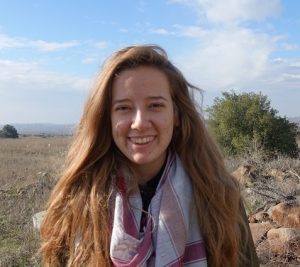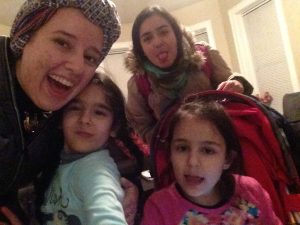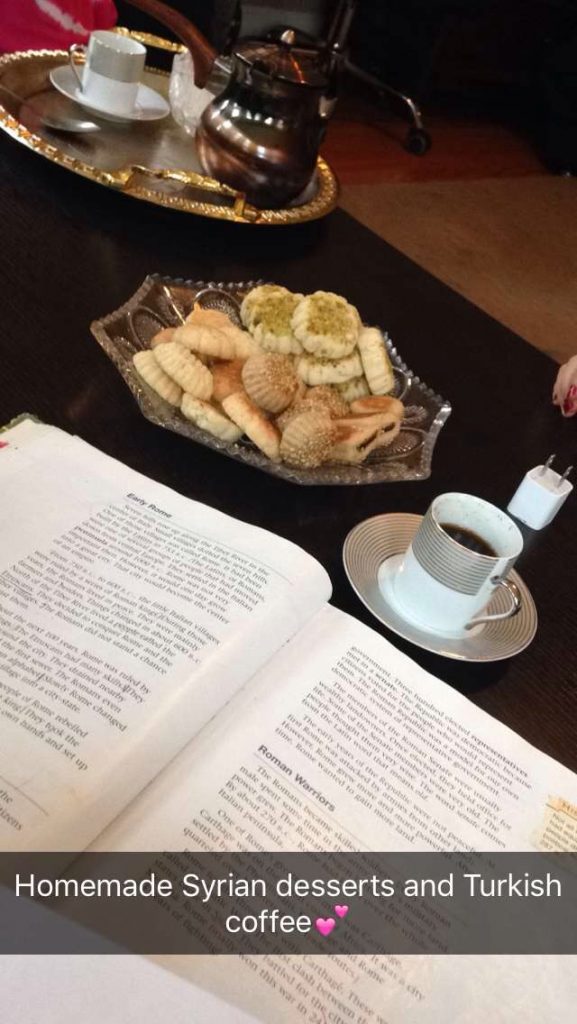My name is Kristiana Peric and I am a junior at Loyola majoring in International Studies and minoring in Spanish, Arabic and Peace Studies. Ever since the beginning of my freshman year I began to become deeply invested in the Syrian crisis. By the time spring semester of my sophomore year rolled around I started volunteering with a non-profit organization called Syrian Community Network, also known as SCN. SCN is local organizations that help relocate Syrian refugees in the Chicago-land area and helps them adjust culturally, financially, etc. in their new country/community.
I have become very close with the children since they had already been in America for about a year and they picked up on the language easily, but it was much, much more difficult speaking with the mother considering she was a grown adult and not really exposed to English-speakers like the children were. This became one of the main reasons as to why I wanted to take Arabic, so that I would able to better communicate and understand the family, particularly the mother. It has only been a semester of me learning Arabic and it was honestly a lot more difficult than I thought. The first struggle I encountered was to grasp the courage to speak in front of natives. My mouth and throat constantly (and still do) felt awkward making noises that I had never made before. The other struggle was trying to remember the words we had learned on the spot and to conjugate correctly. It is one thing to have all of the words you need and the book right in front of you but it is a completely different thing to be thrown in the middle of a conversation without any aid beside you. Another obstacle was the difference in the shaami/ dialect and faSHa/formal.
However, I still tried speaking with the children and would (ironically) ask them how to properly pronounce certain letters and noises. The more I did that the more comfortable I became, especially with my family, I found it to make us a lot closer surprisingly. I realized that the reason as to why we were becoming closer was because we were both learning new languages and we were both becoming vulnerable to each other by speaking in languages we both were weak in, and this vulnerability we shared made it easier for us to laugh at our own mistakes and grasp a bigger reality that we are all human and all flawed.




